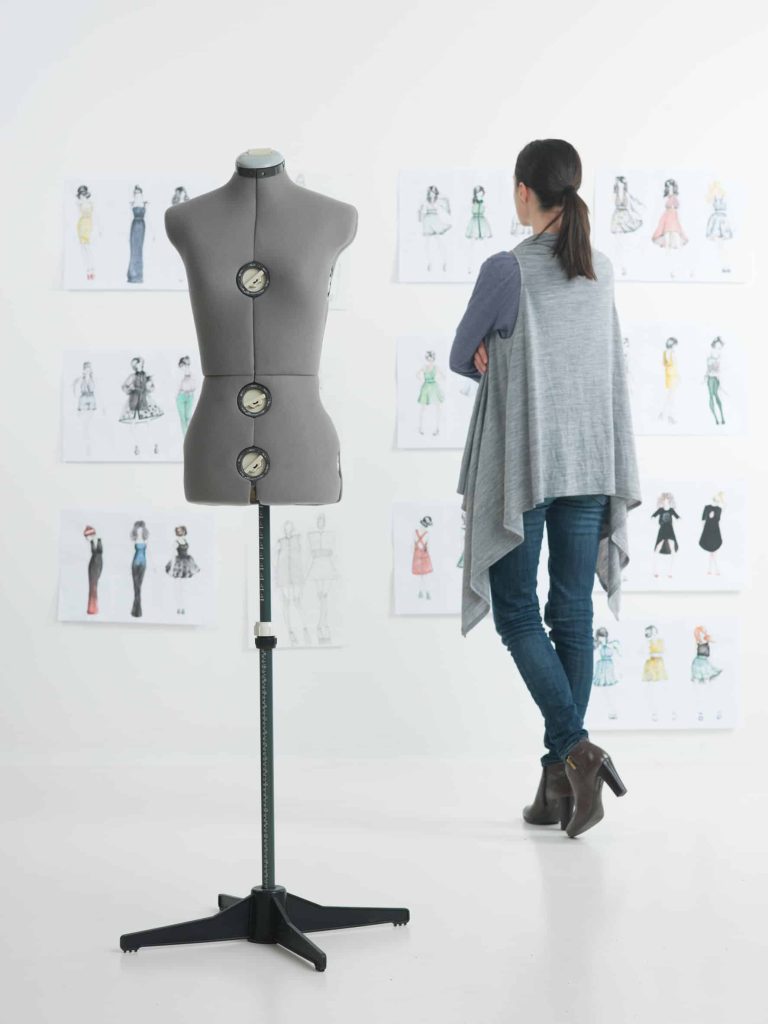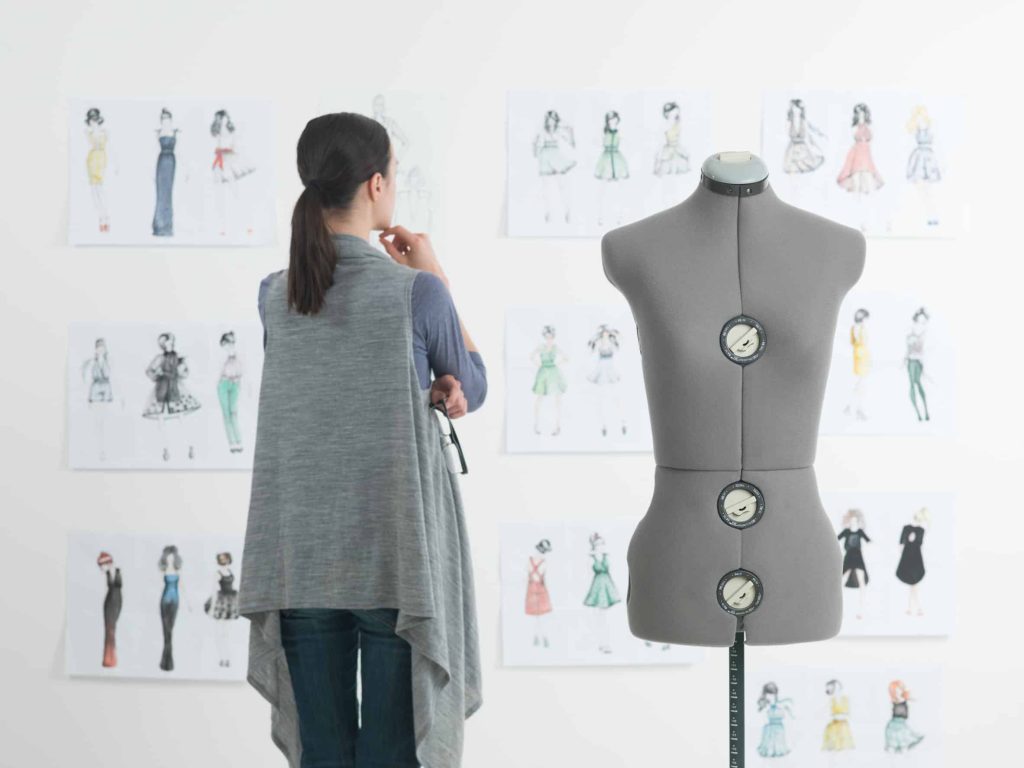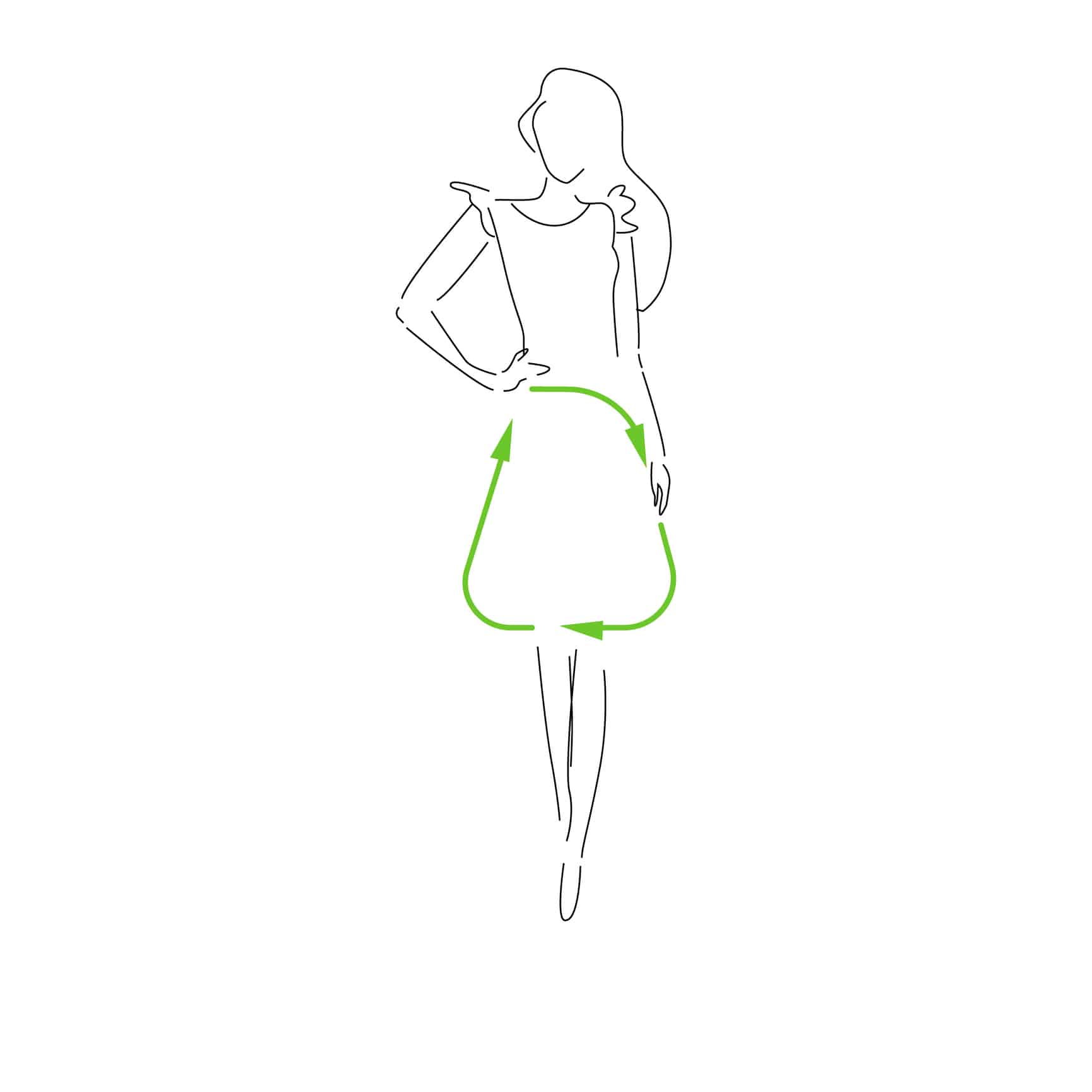A fashion designer produces designs and creates clothing using their creativity, imagination and life experiences. They typically apply aesthetics and inspirations to their designs, and work in tandem with other individuals in the industry.
Fashion designers often collaborate with stylists, seamstress, design firms, merchandisers, and magazine editors, to name a few.
Since the fashion industry is a multi-million-pound business, it means there are plenty of openings and opportunities for those looking to pursue a career in the industry. Becoming a fashion designer isn’t easy and you will have to work hard to land an impressive role. However, it is certainly possible.
Here’s what you should know about the role of fashion designing, and how you can become a professional fashion designer someday.
Fashion designers create women’s, men’s, and children’s clothing and accessories. That might include outerwear, underwear, sportswear, eyewear, and footwear. Some designers also make belts, hats, scarves, and handbags. In order to thrive as a designer, it’s best to specialise in a certain field. However, you can still branch out and explore other paths.
Fashion designers come at different levels of the industry. For instance, some may be unknown working for ready-to-wear houses while others may be stylists to celebs and other notable people.
Fashion design is changing all the time. With the introduction of new technologies, fashion designers are now using innovative technologies like body-scanning for an improved custom fit and knitting technologies that produce clothing in seconds.
It was once the sewing machine that changed the realm of fashion. Now, and definitely in the future, fashion will change due to new technologies and tools. Besides improving the end result, it will also make things easier for designers.
The design process is a time consuming one. From design concept to final production, it can take many months before a product is complete. Researching trends and making predictions is the first step in the process. Designers need to be aware of what trends are happening now, and what trends may crop up in the upcoming months. It’s a job that requires being on the ball, staying aware, and being able to make trustworthy predictions.
Once a fashion designer has completed their research, they will begin to sketch designs. Designers then visit manufacturers or trade shows in order to acquire samples of fabrics. From there, they’ll be able to decide which fabrics to use with which designs, and then the production takes place.

Wondering which type of fashion designing you should get into? Here are the three main areas to choose from.
As a fashion designer, it’s important to possess the following skills if you wish to thrive in the field.
Creativity
Since most of your career will involve sketching and designing, you’ll need to possess natural artistic ability and creativity. If you don’t have a keen eye for design, you won’t be able to create things that other people want to buy. You need to create art that is recognizable and distinguishable.
While artistic skills are quite often innate, you can still sharpen your skills by attending an art workshop or class. This will enhance your skillset, so you can increase your chances of becoming a designer.
Understanding of Materials
Every fashion designer needs a thorough understanding of fabrics and materials. They need to know when to choose what, and what will work when. For instance, some materials simply would not work in the summertime and the same in the wintertime. But it gets more complicated than that. Designers also need to know which fabrics will withstand certain temperatures, which can be easily washed, etcetera etcetera.
Sewing Skills
Designers must be able to sew well if they want to succeed as a fashion designer. They do not need to be masters of fashion construction, but they do need to easily be able to navigate a sewing machine and turn their designs into something tangible.
Communication Skills
In order to develop their brand, fashion designers must possess strong communication skills. They’ll also need to be able to effectively work with teams and give feedback when needed.
Like with most job positions, a fashion designer’s salary depends on location, employer, and level of experience.
Starting salaries as a fashion designer are often low with junior designers earning approximately £25,000 a year.
Senior fashion designers can earn around £42,000 to in excess of £85,000.

Are you interested in becoming a fashion designer? It won’t happen overnight, but with a little work and persistence, you can certainly achieve your dream role as a fashion designer. Here are some tips for making it happen.
Gain a Thorough Understanding of Fashion and Trends
You don’t need a degree to become a fashion designer, but you do need extensive knowledge of fabrics, techniques, and trends. Read as much as you can on the subjects and soak up all the knowledge you can. Alternatively, enrol in an online course so you can learn more about fashion design as a whole.
Get an Internship
At the beginning of your career, you want to gain as much experience as possible. Reach out to people in the field and seek out mentors. Alternatively, look for internships to get closer to the field and gain hands-on experience in the industry. Besides honing your skills, you’ll be able to make some invaluable connections.
Create a Portfolio
And not just any portfolio. An amazing portfolio! Since fashion design relies primarily on the visual aspects of things, you’ll need to create a portfolio that shows you have a keen eye for fashion.
Create striking designs
Ask your friends and loved ones to model for you (or pay professionals if you prefer), and create a collection of your best works. This way, when you apply for a job or wish to show potential clients your work, you can give them something they won’t be able to refuse.
Are you hoping to become a fashion designer someday? Or maybe you’re already in the process of making it happen? Either way, make sure you follow the tips above to increase your chances of landing an exciting job role in the industry.
| Cookie | Duration | Description |
|---|---|---|
| cookielawinfo-checbox-analytics | 11 months | This cookie is set by GDPR Cookie Consent plugin. The cookie is used to store the user consent for the cookies in the category "Analytics". |
| cookielawinfo-checbox-functional | 11 months | The cookie is set by GDPR cookie consent to record the user consent for the cookies in the category "Functional". |
| cookielawinfo-checbox-others | 11 months | This cookie is set by GDPR Cookie Consent plugin. The cookie is used to store the user consent for the cookies in the category "Other. |
| cookielawinfo-checkbox-necessary | 11 months | This cookie is set by GDPR Cookie Consent plugin. The cookies is used to store the user consent for the cookies in the category "Necessary". |
| cookielawinfo-checkbox-performance | 11 months | This cookie is set by GDPR Cookie Consent plugin. The cookie is used to store the user consent for the cookies in the category "Performance". |
| viewed_cookie_policy | 11 months | The cookie is set by the GDPR Cookie Consent plugin and is used to store whether or not user has consented to the use of cookies. It does not store any personal data. |
Create your free account and begin your sustainability journey.

